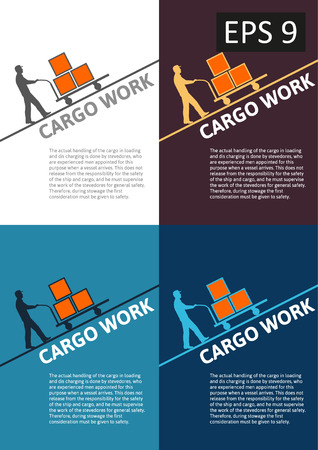Introduction to Software Engineering in the UK
Software engineering has emerged as one of the most dynamic and sought-after professions across Britain. As technology continues to shape every aspect of society and business, the demand for skilled software engineers has surged, making this field crucial to the UK’s economic growth and digital transformation. The British software sector is not only defined by its robust tech start-up culture in cities like London, Manchester, and Edinburgh, but also by a strong presence of global technology firms and established financial institutions embracing digital solutions. In recent years, there has been a marked shift towards agile development practices, cloud-native applications, and a greater emphasis on cybersecurity, reflecting broader global trends while catering to unique local requirements. With government initiatives supporting digital skills and innovation hubs proliferating throughout the country, software engineering offers compelling career opportunities for both new graduates and experienced professionals. The profession’s relevance extends beyond traditional IT companies; sectors such as healthcare, fintech, education, and public services increasingly rely on bespoke software solutions tailored for the British market. As such, software engineering in Britain is not just about coding — it is about solving real-world problems, driving innovation, and contributing to the nation’s competitive edge in a rapidly evolving global economy.
2. Typical Career Pathways for Software Engineers
In the UK, the journey of a software engineer is both structured and diverse, offering multiple avenues for professional growth. Whether you’re just starting out or considering a move into leadership or specialisation, understanding the traditional and emerging career tracks can help you make informed decisions about your future.
Entry-Level Roles
Most graduates or newcomers begin their careers as Junior Software Engineers or Graduate Developers. These positions focus on learning the ropes: writing clean code, working under supervision, and developing core technical skills. Many UK employers offer graduate schemes, providing structured mentorship and rotation through various teams.
Mid-Level Progression
With experience, professionals advance to roles such as Software Engineer or Developer. Here, responsibilities expand to include designing components, collaborating with cross-functional teams, and occasionally mentoring juniors. At this level, engineers often start to specialise in areas such as front-end, back-end, mobile development, or DevOps.
Senior and Lead Positions
The next step involves progression to Senior Software Engineer, Technical Lead, or even Principal Engineer. These roles require not only technical expertise but also leadership skills. Senior engineers are expected to architect solutions, guide project delivery, and influence technology choices. Leads often manage small teams and bridge communication between developers and stakeholders.
Managerial Opportunities
For those interested in people management or strategic direction, moving into roles like Engineering Manager, Head of Engineering, or CTO is a common pathway. These positions involve overseeing teams or entire departments, driving engineering culture, and aligning technology with business goals. In the UK’s tech sector—especially in London, Manchester, and Edinburgh—demand for skilled leaders remains strong.
Specialisation and Contracting Options
The British market values specialists in fields such as data engineering, cybersecurity, machine learning, and cloud computing. Alternatively, many choose to become Contractors or Freelancers, offering flexibility and often higher daily rates. Contract work is especially prevalent in fintech hubs like London’s Canary Wharf.
Summary of Career Tracks in the UK Software Industry
| Level/Role | Description | Typical Experience Required | Main Locations (UK) |
|---|---|---|---|
| Junior/Graduate Developer | Entry-level; learning environment; basic coding tasks | 0-2 years (often with degree/apprenticeship) | Nationwide; larger firms in London & Cambridge |
| Software Engineer/Developer | Mainstream developer role; increased responsibility; start of specialisation | 2-5 years | Nationwide; tech clusters in Manchester & Leeds growing fast |
| Senior Engineer/Lead Developer | Architectural decisions; mentoring; leading projects/teams | 5-8 years+ | Larger enterprises & startups across major UK cities |
| Manager/CTO/Head of Engineering | Tactical & strategic leadership; cross-team coordination; business alignment | 8+ years plus management acumen | Mainly London, Edinburgh, Bristol tech hubs |
| Specialist/Contractor/Freelancer | Niche expertise or independent contracting/freelance projects | Varies – typically 5+ years plus deep domain knowledge | Largely remote or based at client sites; high demand in fintech & AI sectors |
This flexible framework reflects both the established pathways and the dynamic nature of Britain’s software engineering landscape. Whether aiming for technical mastery or leadership roles—or seeking independence through contracting—engineers in the UK have myriad options for advancing their careers.

3. Salaries and Benefits: What to Expect
When considering a career in software engineering within Britain, understanding the financial landscape is crucial for making informed decisions about your future. Salaries and benefits can vary significantly depending on factors such as location, experience, and company size. This section provides a realistic overview of what to expect across England, Scotland, Wales, and Northern Ireland.
Salary Ranges Across the UK
Entry-level software engineers typically start with salaries ranging from £28,000 to £35,000 per year. As you progress to mid-level roles (with three to five years’ experience), annual earnings usually climb to between £40,000 and £55,000. Senior software engineers or those specialising in high-demand areas like AI or cybersecurity can command salaries upwards of £65,000, with some London-based positions exceeding £80,000 or more.
Regional Variations
London remains the highest-paying region due to its concentration of tech firms and cost of living. However, cities such as Manchester, Edinburgh, Bristol, and Belfast are emerging as competitive tech hubs offering attractive salaries alongside a lower cost of living. For example, while a senior engineer in London may earn £75,000 annually, their counterpart in Glasgow or Cardiff might expect around £60,000—though their take-home pay stretches further thanks to reduced living costs.
Benefits Packages
Beyond base salary, most UK employers offer comprehensive benefits packages. These commonly include private health insurance, pension contributions (often above statutory minimums), flexible working arrangements (remote or hybrid work), generous annual leave (typically 25–30 days plus bank holidays), and professional development budgets. Some leading tech firms also provide wellness programmes, stock options, travel allowances, and enhanced parental leave.
Negotiating Your Offer
It’s standard practice in Britain to negotiate salary and benefits upon receiving a job offer—especially for mid- or senior-level positions. Demonstrate awareness of local salary benchmarks and be prepared to discuss how your skills align with business needs. Remember that negotiating isn’t just about pay; additional holiday entitlement or remote working flexibility can be valuable perks that enhance your overall package.
In summary, software engineering salaries in Britain are competitive by international standards but vary by region and sector. Take time to research local market rates and weigh both financial compensation and benefits when evaluating job opportunities across the UK’s diverse tech landscape.
4. Key Skills and Qualifications for British Employers
For software engineers aiming to thrive in the UK tech sector, a strong combination of technical expertise and soft skills is essential. British employers place significant emphasis not only on up-to-date programming knowledge but also on professional behaviour, adaptability, and clear communication within multicultural teams.
Essential Technical Competencies
The core technical skills required by UK employers align with global standards, yet some specifics are influenced by local industry trends and project needs. The following table summarises sought-after competencies:
| Skill Area | Description |
|---|---|
| Programming Languages | Proficiency in Python, JavaScript, Java, C#, or Go is highly valued. |
| Cloud Platforms | Experience with AWS, Azure, or Google Cloud; familiarity with DevOps practices. |
| Web Development | Expertise in frameworks such as React, Angular, or Vue.js. |
| Testing & QA | TDD (Test-Driven Development), automated testing tools, and CI/CD pipelines. |
| Cybersecurity | Understanding of secure coding practices and compliance with UK data protection laws. |
Soft Skills That Set You Apart
- Communication: Clear verbal and written English tailored to diverse audiences is crucial for collaboration and stakeholder engagement.
- Problem-solving: Analytical thinking and creativity in resolving technical challenges are highly regarded.
- Teamwork: Ability to work effectively in cross-functional, often international teams.
- Adaptability: Willingness to embrace new technologies and agile methodologies as projects evolve.
The Importance of UK-Specific Qualifications
Certain certifications and accreditations can significantly enhance your employability in Britain:
| Qualification/Accreditation | Benefit |
|---|---|
| Bachelor’s/Master’s Degree (UK-accredited) | Often a baseline requirement for graduate roles; ensures alignment with British academic standards. |
| Chartered IT Professional (CITP) | Awarded by BCS (The Chartered Institute for IT), it demonstrates advanced competence and commitment to professional ethics. |
| SPECIALISED CERTIFICATIONS | E.g., AWS Certified Solutions Architect, Microsoft Certified: Azure Developer Associate – boosts credibility for cloud-focused roles. |
The Value of Ongoing Professional Development
The UK tech industry evolves rapidly. Engaging in continuous learning through workshops, short courses (e.g., from the Open University or CodeClan), and attending meetups or conferences (such as London Tech Week) is encouraged. British employers appreciate candidates who demonstrate initiative in keeping their skillset current and relevant.
5. Industry Insights and Major Employers
Britain’s software engineering landscape is shaped by a diverse range of sectors, each offering unique opportunities for career growth and advancement.
Leading Sectors Employing Software Engineers
The technology sector remains the cornerstone for software engineering roles in the UK, with major hubs in London, Manchester, Cambridge, and Edinburgh. Financial services—particularly in London’s “Silicon Roundabout”—are prominent employers due to ongoing digital transformation in banking and fintech. The healthcare sector is rapidly expanding its digital initiatives, while e-commerce giants and telecommunications companies also drive significant demand for skilled engineers. Additionally, the public sector, including government agencies such as HMRC and NHS Digital, offers stable employment with competitive benefits.
Major Employers and Their Impact
Global tech firms like Google, Microsoft, Amazon, and Meta have established substantial presences in Britain, providing lucrative positions and fostering a culture of innovation. Homegrown enterprises such as ARM Holdings (Cambridge), Sage Group (Newcastle), and Ocado Technology are renowned for their engineering teams and commitment to staff development. The financial technology space is dominated by companies like Revolut, Monzo, and Wise, which offer dynamic environments ideal for ambitious professionals.
The Rise of Startups
Britain boasts a thriving startup ecosystem, particularly in London’s Tech City and other urban innovation clusters. Startups tend to offer flatter hierarchies, accelerated learning curves, and greater autonomy—attractive features for early-career engineers eager to make an impact. However, these roles may come with higher risk and less job security compared to established firms.
Remote and Hybrid Working Trends
The COVID-19 pandemic has permanently shifted attitudes towards remote work. Many British employers now offer hybrid arrangements or fully remote positions as standard practice, broadening access to talent across the country and supporting work-life balance. This trend is especially prevalent within tech-forward organisations and startups but is increasingly being adopted by traditional industries as well.
Conclusion
Understanding the breadth of sectors and employers available enables software engineers in Britain to target roles that best align with their personal values, desired work style, and long-term career ambitions. Whether seeking the stability of a multinational corporation or the agility of a startup, there are ample opportunities to build a rewarding software engineering career across the UK’s vibrant tech landscape.
6. Networking, Professional Growth, and Progression
In the dynamic landscape of software engineering in Britain, forging strong professional relationships and investing in continuous development are crucial for long-term career success. Building a robust network not only opens doors to new opportunities but also provides a valuable support system throughout your professional journey.
Building Your Professional Network
Networking in the UK often begins at university or through entry-level positions, but it’s never too late to start. Attend local tech meetups, industry conferences such as Devoxx UK or London Tech Week, and join regional chapters of professional bodies like BCS, The Chartered Institute for IT. Leverage platforms like LinkedIn to connect with peers, recruiters, and potential mentors within the British tech scene. Don’t underestimate the power of informal networks—engage with colleagues over coffee or participate in after-work socials to build rapport.
Finding Mentorship
Mentorship is highly valued within the UK tech community. Many organisations offer formal mentoring programmes; if yours doesn’t, consider reaching out to experienced professionals via industry events or online communities. Be proactive in seeking guidance—most senior engineers are willing to share their insights if approached respectfully. Remember, mentorship is mutually beneficial; be prepared to demonstrate commitment and clear goals.
Leveraging UK-Based Communities
The British software engineering sector boasts a vibrant ecosystem of user groups and associations. Join communities such as Meetup London Tech Groups, techUK, or local chapters of international organisations (e.g., Women Who Code London). These communities provide excellent platforms for knowledge sharing, skill development, and discovering job leads tailored to the UK market.
Charting Your Path Toward Success and Promotion
Progression in British software engineering typically follows a transparent framework—from Junior Developer up through Senior Engineer, Lead Developer, and eventually into management or specialist roles. To position yourself for promotion:
- Regularly upskill through certifications recognised in the UK (e.g., AWS Certified Developer, Chartered IT Professional).
- Seek out challenging projects that demonstrate leadership and initiative.
- Request feedback from supervisors and act on it to show adaptability.
- Participate in cross-functional teams to broaden your business understanding.
Final Advice: Sustaining Growth
Sustained professional growth hinges on adaptability and a willingness to embrace change. Stay abreast of emerging technologies relevant to the UK market—such as FinTech innovations or AI regulation—and don’t hesitate to pivot your focus when opportunities arise. By cultivating a strong network, seeking mentorship, engaging with local communities, and consistently pursuing advancement, you’ll be well-placed for both immediate progression and enduring success within Britain’s thriving software engineering sector.


